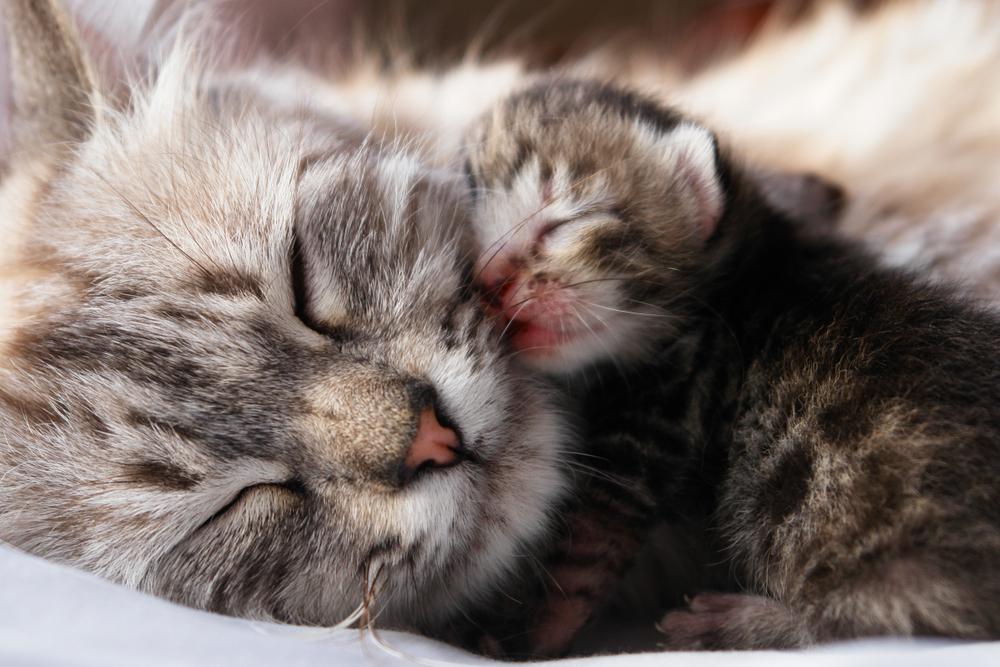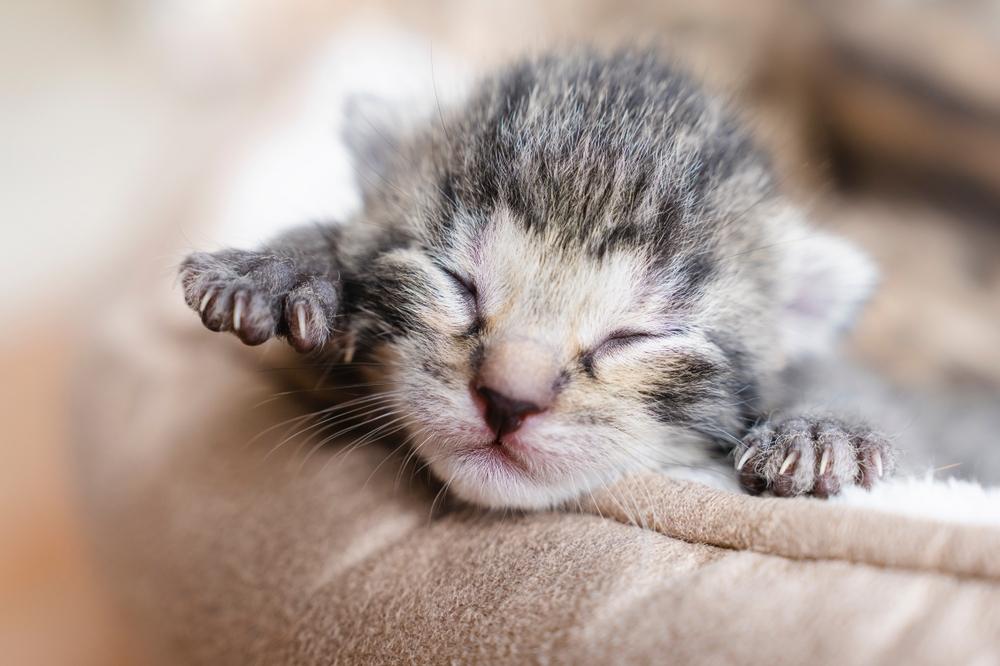
While adult cats are known for their remarkable night vision, newborn kittens enter the world rather helplessly — completely blind, with their eyes sealed shut. Fortunately, newborn kittens develop rapidly, gaining both sight and strength in a short period of time. But when do kittens open their eyes, exactly, and what factors influence this important milestone?
Explore how kitten vision develops, what to expect during those early weeks and signs that may indicate a concern.
When Do Kittens' Eyes Open?
Kittens typically begin to open their eyes within the first two weeks of life, though there can be some variation to this general rule. Some kittens may open their eyes a bit sooner, while others may take up to an extra week. Regardless of the exact timing, the period in which their eyes are closed is beneficial, providing protection from harsh, bright lights and promoting healthy ocular development.
Before their eyes open, kittens rely on their other senses — notably smell and touch — to find their mother for nurturing care during these early days. Their soft, tiny mews also help alert mom to their needs, prompting her to assist with feeding, elimination, hygiene and body temperature regulation (to name a few maternal responsibilities).
If you're keeping a close watch, you may first notice a small slit appearing in your kitten's eyelid, an early telltale sign that their eyes are beginning to open. This slit will gradually widen until, eventually, their eyes are fully open. If one eye opens before the other, don't fret. This can be perfectly normal and isn't typically a cause for concern.

When Do Kittens Actually See?
Just because a kitten's eyes are open doesn't mean they can see clearly right away. Just like with human babies, developing vision takes time. It may also develop unevenly between the two eyes. During the first couple of weeks, kittens may only be able to detect light and motion. By around 3 weeks old, many kittens begin to focus their vision with both eyes, showing improved coordination and visual awareness of their surroundings. Most kittens develop full vision by around 6 to 8 weeks old.
Do Kittens' Eyes Change Color?
Once their eyes open, you'll find that all newborn kittens are born with blue eyes. This color may change as the kitten grows. By around 8 to 10 weeks of age, or roughly two months, you'll be able to tell the true color of the kitten's eyes.
How Can You Help Care for a Newborn Kitten?
Beyond answering the question "when do kittens' eyes open," the newborn phase of kittenhood is high-need, and it involves substantial growth. While most mother cats will tend to their newborns and leave little of the work to you, familiarize yourself with newborn kitten care tips to help ensure you're doing your part to support their growth and development.
Prevent Exposure to Bright Lights
Keep young kittens away from bright lights, as intense or harsh lighting can harm their developing eyes. Furthermore, never force a kitten's eyes open. Remember, closed eyes during the early days is a natural and necessary part of a kitten's healthy eye development.
Keep Bedding Clean
Regularly change out soiled bedding or nesting material with clean, scent-free towels or blankets to help make it easier for the mother cat to maintain a hygienic environment. Proper hygiene is essential to helping protect kittens from bacterial and viral infections that could impact their vision and overall health.
Ensure Mom's Needs Are Met
Ensure the mother cat always has easy access to fresh water and complete and balanced nutrition formulated for growth and lactation. She should also be able to come and go from the nesting area as she pleases, so be sure the space allows for freedom of movement.
Visit Your Kitten (But Minimize Handling)
While kittens are rather non-interactive during the newborn days, being present and familiarizing them with your voice and scent is an early form of socialization for kittens, helping them develop a positive association with people. Minimize handling during this period, and always be gentle when handling is necessary.

Signs of Eye Issues
In some kittens, a crust can form around the eyes, which may delay eye opening and potentially lead to infection. The mother cat will normally keep her kittens clean with frequent grooming, especially around the face. However, some mothers — particularly young or inexperienced ones — may be inattentive. In the case of orphaned kittens, caregivers will need to take on this responsibility by gently wiping the kitten's face with a clean, warm, damp cloth. Never use soap, and never try to force a kitten's eyes open.
Eye crusting is a common issue often caused by bacterial or viral infections. If the condition doesn't improve or seems to worsen, contact your veterinarian immediately to have the kitten evaluated and treated promptly. Conjunctivitis, characterized by inflammation of the mucous membrane that lines the surface of a cat's eyelids and coats the eyeball's outer surface, is the most commonly diagnosed eye disease in cats of all ages.
Common signs of eye issues in kittens and cats include:
Frequent blinking
Swelling
Squinting
Redness
Discharge
Cloudiness or haziness
If you notice any of these signs, in one or both eyes, contact your vet for a professional examination. Feline eye ailments can worsen rapidly, and many can lead to irreversible blindness.
Supporting Your Kitten's Development: Key Takeaways
So, when do kittens open their eyes? Born with their eyes completely shut, most kittens will open their eyes by 2 weeks of age. By 6 weeks of age, most will have full vision capacity.
Be gentle during this early period of development, as newborn kittens are vulnerable. The mother cat will provide the necessary care in most cases, but you can help by giving kittens a safe, healthy space to grow away from loud noises and bright lights. Visiting the kittens regularly gives you an opportunity to observe them for any signs of disease or infection. Vision problems in cats can become irreversible quickly, so always play it safe. Between your vet's support and your attentive care, you can rest assured you're doing your part to help your kitten thrive.






















